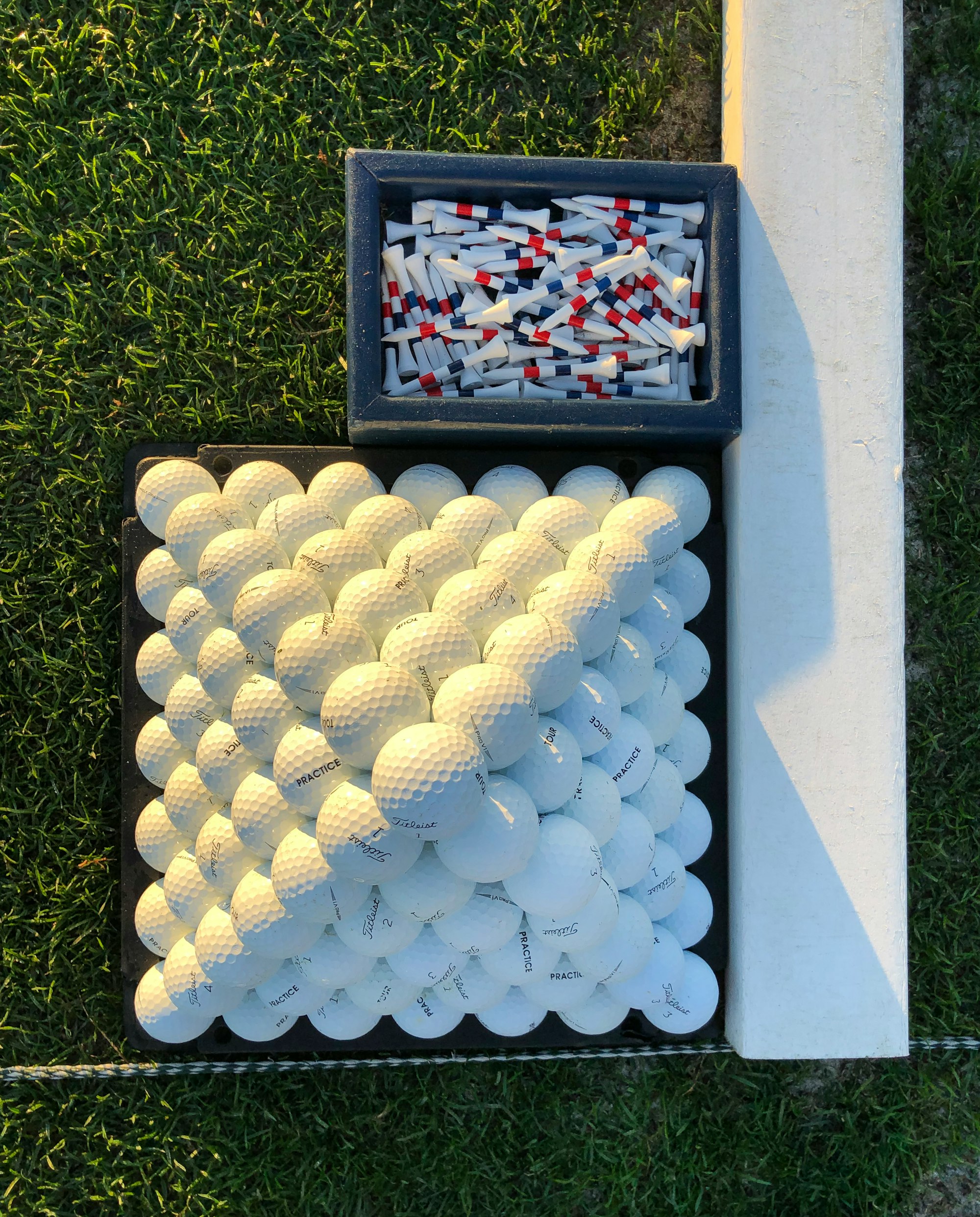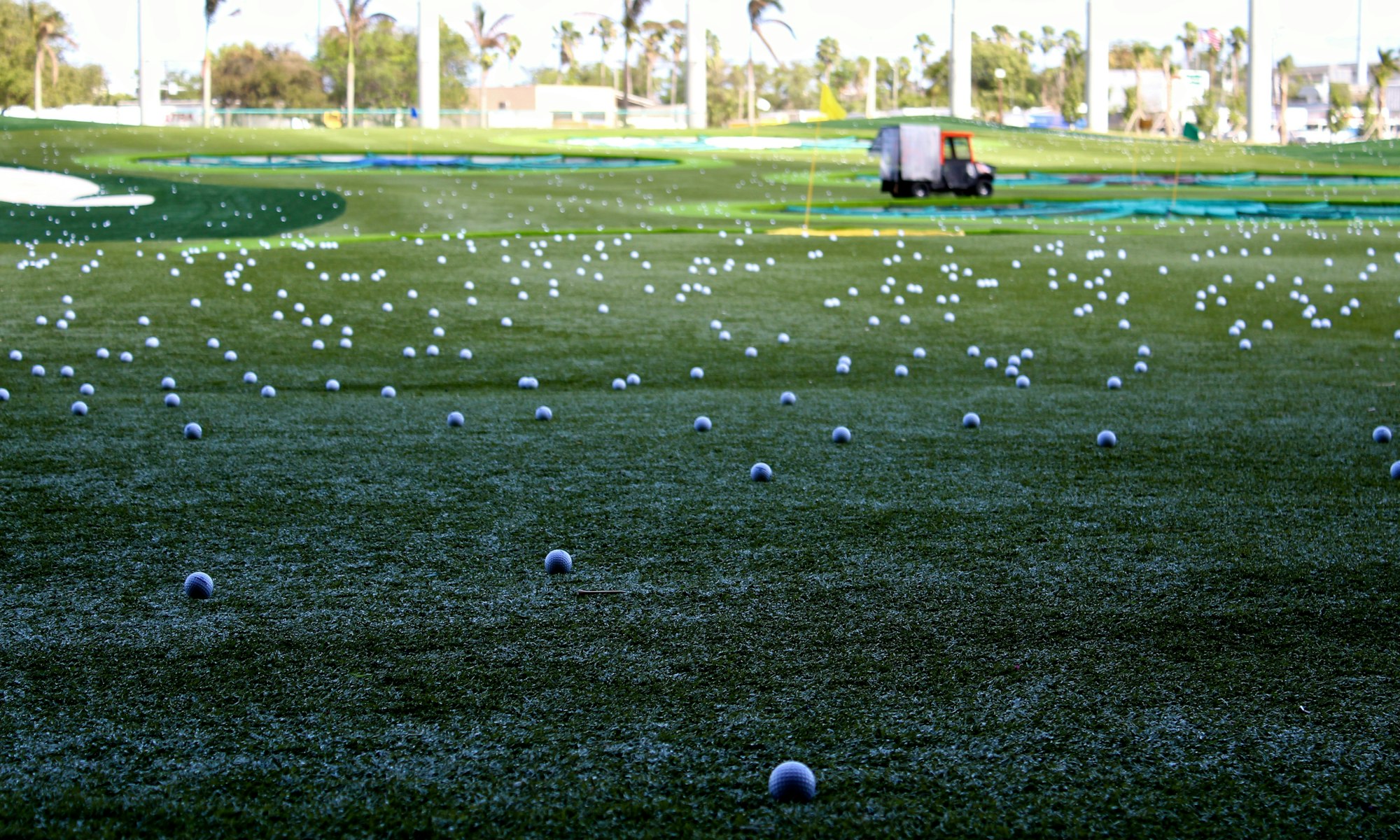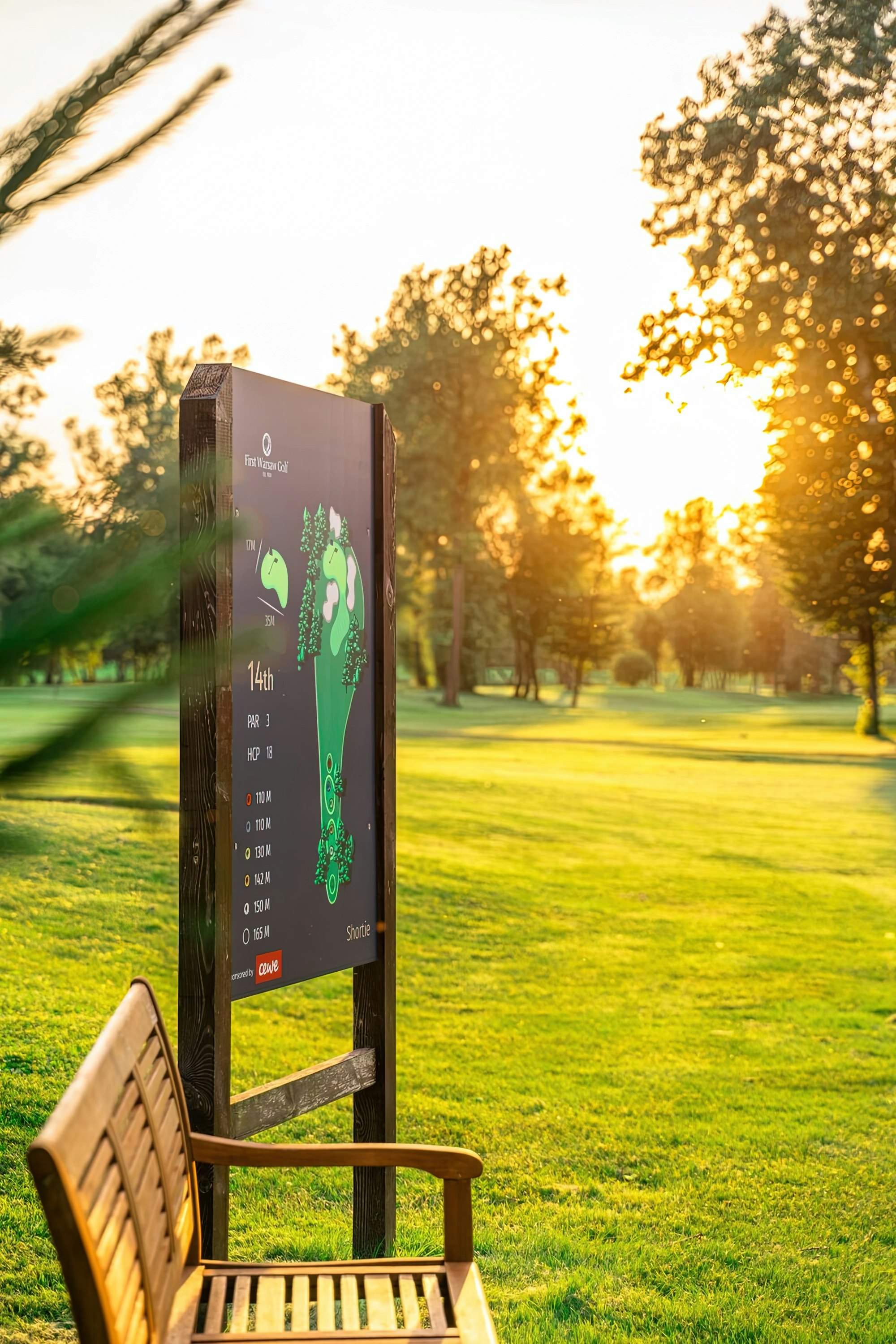Golf is a game of precision, patience, and practice. Whether you're a weekend warrior or an aspiring pro, improving your golf game is a journey that never truly ends.
In this comprehensive guide, we'll explore actionable tips and strategies to help you become a better golfer.
From refining your swing to mastering the mental game, we've got you covered.
Key Takeaways:
- Practice with Purpose: Quality trumps quantity when it comes to practice time. Focus on specific areas for improvement.
- Master the Mental Game: Cultivate the right mindset and mental strategies to stay focused and confident on the course.
- Get the Right Equipment: Using the right clubs and balls can make a significant difference in your performance.
Understand Your Current Game
Before you can improve, you need to know where you stand. Track your rounds, noting down your shot counts and the types of shots that give you trouble.
This data will highlight the areas that need the most attention.
Many golfers find that their short game is often the culprit for higher scores, so don't overlook the importance of putting and chipping.

Invest in Proper Equipment
The right equipment can change your game. If you're playing with clubs that don't suit your style or body type, you're setting yourself up for failure.
Get fitted for clubs to ensure they complement your swing speed and style.
Additionally, using golf balls that match your skill level can help with more distance and better balance on your shots.
Take Golf Lessons
Even the top golfers in the world work with coaches. Golf lessons from a certified golf professional can provide you with personalized feedback and help you correct bad habits before they become ingrained.
A good instructor will also help you make simple adjustments that can lead to lower scores.
Practice with a Purpose
It's not just about hitting balls on the driving range; it's about having a focused practice session. Work on different shots, from full shots to approach shots, and practice under various conditions.
Use training aids if necessary, but always ensure your practice time is structured to address specific parts of your game.

Develop a Solid Pre-Shot Routine
Pre-shot routines help with consistency and focus. Whether it's taking a deep breath or visualizing the shot, having a routine can set the tone for a good golf swing.
Stick to your routine on every shot, from the tee to the green, to maintain a good rhythm and flow throughout your round.
Master the Short Game
So many golfers focus on driving distance, but the short game is where you can improve your score.
Spend more practice time on your pitching wedge, chipping, and putting. Learn how to hit different types of short-game shots, as these can save you from double bogeys or worse.
Focus on Your Swing Speed
Swing speed is crucial for more distance, but swinging faster isn't always the answer. Work on better balance and timing to create a good rhythm in your swing.
This can often lead to a more powerful and controlled swing than simply trying to hit the ball as hard as possible.

Play Smart Golf
Understanding the golf course and making smart decisions is a skill that most golfers overlook. Learn when to take risks and when to play it safe.
Sometimes, laying up or choosing a club with more loft can lead to better scores than going for the hero shot.
Embrace Course Management Strategies
When playing golf, one of the most overlooked aspects that can transform an average golfer into a better one is course management.
This involves making strategic decisions about how to play each hole, considering the risks and rewards of different golf shots.
For instance, deciding whether to lay up or go for the green on a par 5 can make a significant difference in your score.
By understanding the layout and the best angles to approach each green, you can minimize the chances of a bad shot and set yourself up for more good shots.
Course management also includes knowing when to be aggressive with your golf clubs and when to play it safe.
A simple adjustment, like choosing a club that will keep you short of trouble even if you miss it, can save strokes.
Additionally, always think one step ahead. Before taking your shot, consider where you want to land the golf ball for your next shot.
This forward-thinking approach helps in building a smart pre-shot routine that aligns with the challenges of each hole, ultimately leading to better golf.

Emphasize the Importance of a Pre-Shot Routine
Developing a consistent pre-shot routine is like having a secret weapon in your golf arsenal. It's the mental and physical rehearsal before every shot that sets the stage for success.
Ben Hogan, one of golf's greatest players, was known for his meticulous pre-shot routine, which helped him win nine major championships.
By visualizing the shot, aligning your body, and taking a practice swing, you create a repeatable process that can calm nerves and boost confidence.
This routine becomes a trigger that tells your mind and body it's time to perform, paving the way for a more focused and precise shot.
Incorporating specific elements into your pre-shot routine, such as a deep breath, checking your grip, and ensuring your front foot is positioned correctly, can make a significant difference.
The front foot's placement affects your balance and the swing's path, which is crucial for achieving the desired ball flight.
Remember, the pre-shot routine is personal; what works for one golfer might not work for another.
Experiment with different elements until you find a sequence that feels natural and improves your game.
Perfect Your Follow-Through for a Polished Swing
The follow-through is the grand finale of your golf swing, and it's more than just a flourish—it's a critical component that reflects the quality of the entire swing.
A proper follow-through ensures that you've transferred your weight onto your front foot, maintained your balance, and delivered the clubface squarely to the ball.
It's the natural conclusion to a well-executed swing, and when done correctly, it can significantly enhance your power and accuracy.
Ben Hogan's iconic silhouette with a high finish and balanced front foot position is a testament to the importance of a solid follow-through.
To achieve a Hogan-esque follow-through, focus on completing your swing with your chest facing the target and your back foot coming up onto its toes.
This indicates a full body rotation and proper weight shift.
Practice this aspect of your swing with drills that emphasize finishing high and holding your follow-through position.
This will not only improve the consistency of your shots but also help prevent injury by ensuring a smooth, unhindered motion. Remember, the follow-through is not just an end—it's the result of everything done correctly before it.

Refine Your Golf Ball Selection
The golf ball you play with can have a profound impact on your game.
While the average golfer might not give much thought to the type of ball they use, a scratch golfer knows that the right ball can enhance their long game, improve their feel around the greens, and help them swing faster without losing control.
Different golf balls offer varying levels of spin, distance, and feel, and finding the one that matches your playing style can lead to more consistent golf shots.
For example, if you struggle with control, a ball designed for a lower spin might help you hit straighter shots. Conversely, if you're looking to add spin around the greens for better control, a higher-spinning ball might be the answer.
Experimenting with two balls during practice rounds can give you a clear idea of which ball performs best under different conditions.
Remember, even a seemingly minor detail like golf ball selection can have a significant impact on your game, so take the time to find the right one for you.
Watch Professional Golf
Observing how professional golfers like Tiger Woods or Justin Thomas manage their games can be incredibly educational.
Watch professional golf to learn about course management, shot selection, and how the pros handle bad shots. You can pick up valuable insights that can be applied to your own game.
Work on Your Mental Game
A strong mental game is what separates good golfers from great ones. Develop the right mindset to stay calm under pressure.
Techniques like visualization, positive self-talk, and setting realistic goals can help you maintain focus and confidence in the course.

Fitness and Flexibility
Golf is a physical sport, and your body needs to be prepared for it. Regular exercise, including golf-specific workouts, can improve your strength and flexibility, leading to a more dynamic and resilient swing. Don't neglect this aspect of your training.
Analyze Your Swing
Use video analysis to break down your swing. This can help you identify issues with your form that you might not feel during the swing itself. Many training aids and apps can provide this service, giving you a clearer picture of what needs work.
Play with Better Golfers
One of the best ways to improve is to play with golfers who are better than you. Watch how they approach their shots, manage the course, and handle their emotions. Playing with better golfers can also push you to raise your own game to meet the challenge.
Experiment with Different Shots
Golf is a game of adaptation. Learn how to hit shots with different trajectories and spins. Practice hitting the ball from various lies and in different weather conditions. The more versatile you are, the better prepared you'll be for any situation on the course.
Keep Track of Your Progress
Set specific, measurable goals for your golf game and track your progress. Whether it's achieving a certain handicap, hitting a specific number of fairways in a round, or simply reducing your average number of putts, having clear targets can motivate you to keep improving.

Stay Patient and Positive
Improvement takes time, and golf is a game where even small changes can make a big difference.
Stay patient with your progress and maintain a positive attitude, even when things aren't going your way. Remember, even the best golfers have bad days on the course.
Use Technology to Your Advantage
Modern technology offers a plethora of tools to help you improve your golf game. From swing analyzers to GPS devices that provide yardages and course layouts, make use of the technology available to gain insights and advantages on the course.
Some Final Thoughts
Becoming a better golfer is about more than just swinging a club; it's about deliberate practice, smart equipment choices, and a strong mental approach.
By focusing on these areas and consistently applying the strategies discussed, you'll be well on your way to shooting lower scores and enjoying the game even more.

FAQ's
Q: How often should I practice to improve my golf shots?
A: Quality is more important than quantity. Aim for at least two to three focused practice sessions per week, working on specific areas of your game.
Q: Can watching professional golf help me improve my golf swing?
A: Absolutely. Watching professionals can give you insights into course management, shot selection, and how to handle pressure, which can all be applied to your own game.
Q: Is it worth investing in golf lessons?
A: Yes, golf lessons can be invaluable. A good instructor can provide personalized feedback, help you correct bad habits, and make adjustments that can lead to significant improvements in your game.
Q: How important is physical fitness for golf?
A: Physical fitness can greatly improve your golf game. Regular exercise and golf-specific workouts can increase strength and flexibility, leading to a more powerful and consistent swing.
Q: What type of ball should I use for my game?
A: It's important to experiment with different types of balls to find the one that best suits your playing style. Consider factors such as spin, distance, and feel to determine which ball performs best for you on the course.
Conclusion
Overall, taking a holistic approach to improving your golf game can lead to long-term success and enjoyment of the sport.
Remember to focus on both the physical and mental aspects of the game, seek guidance from professionals when needed, and always be open to trying new techniques and strategies.
With dedication and patience, you'll see your golf game improve over time. Keep practicing, stay positive, and have fun on the course!
So don't be afraid to try new things and experiment with different approaches until you find what works best for you.
Stay dedicated, keep an open mind, and enjoy the journey of improving your golf game.
Happy golfing! - Keep Track of Your Progress Set specific, measurable goals for your golf game and track your progress.
Whether it's achieving a certain handicap, hitting a specific number of fairways in a round, or simply reducing your average number of putts, having clear targets can motivate you to keep improving.







Member discussion